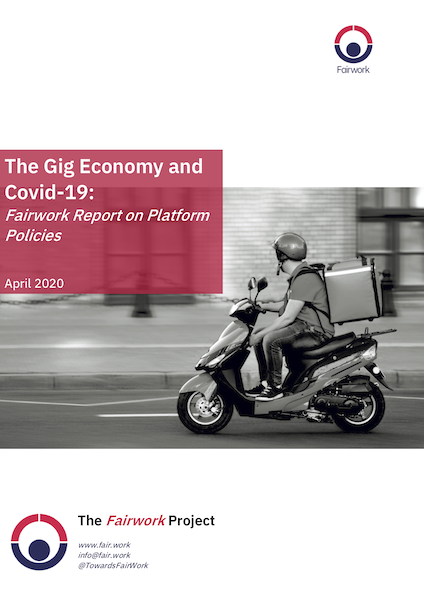
Dr Funda Ustek Spilda
Former Research Associate
Dr Funda Ustek-Spilda was a postdoctoral researcher and project manager on the Fairwork project at the Oxford Internet Institute.

The estimated 50 million gig workers worldwide have been particularly hard-hit by the Covid-19 pandemic. Reports indicate that half have lost their jobs; those still working have lost two-thirds of their income on average; and many face the impossible choice between destitution and infection. While those still in work perform functions essential to society, the pandemic has opened up fracture lines of inequality: not just between gig workers and others who are currently better served by government support schemes, but also by placing added pressures on women, immigrants, and minority-ethnic groups who form a core part of the gig workforce.
To investigate this further, the research team at the Fairwork Foundation undertook a survey of platform response policies; as of April 2020 covering 120 platforms in 23 countries across Europe, North America, South America, Asia and Africa. The report finds that, despite some positive responses, a number of issues remain in platforms’ protection of their workers during the pandemic.
